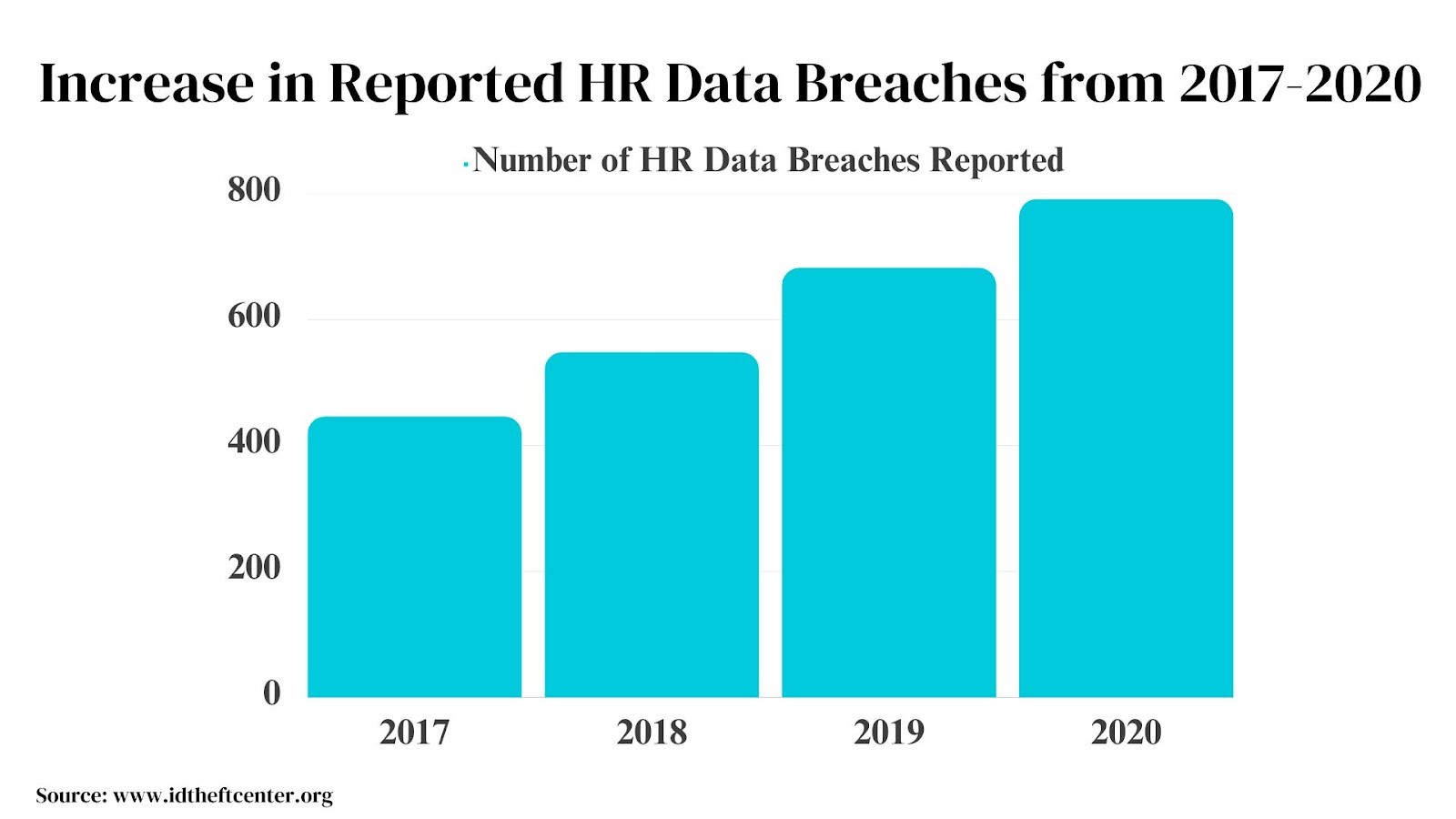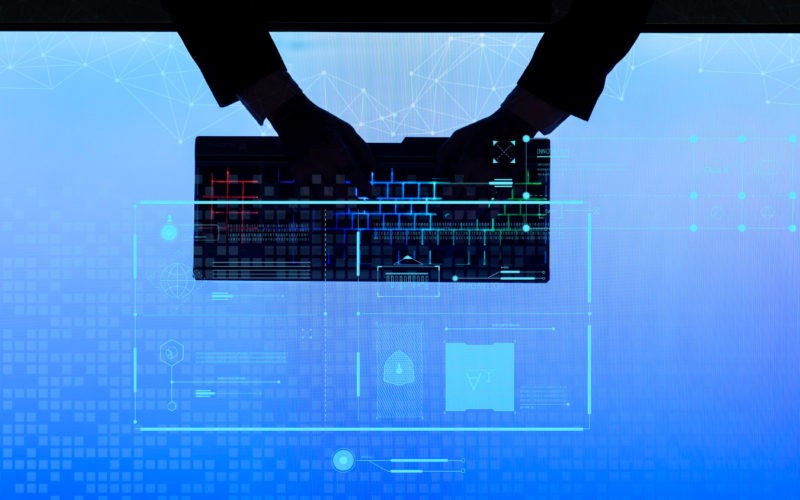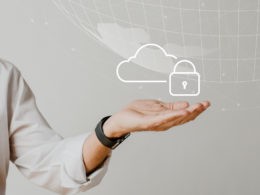In the modern digital age, cybersecurity has become a critical issue for organizations of all types and sizes. This is especially true for HR departments, which handle sensitive applicant data. A data breach in HR could expose confidential information of job candidates, opening the door to identity theft and other cybercrimes. In this article, we’ll discuss the risks of cyber attacks in HR, the potential impact of data breaches, and some best practices HR professionals can follow to lock down applicant data in the digital sphere.
The Dangers of Cyber Threats in HR
HR teams collect and manage a significant amount of personally identifiable information (PII) from applicants. This includes full names, home addresses, phone numbers, email addresses, social security numbers, background check data, and more. All this sensitive info is a goldmine for cybercriminals looking to steal identities or commit fraud.
Unfortunately, HR databases are vulnerable on many fronts. Hackers often target HR systems with email phishing scams aimed at getting login credentials. They may also exploit weaknesses in HR software to break in undetected. Internal threats are common too. Disgruntled employees or those simply unaware of security best practices could expose data inadvertently.
Data breaches can lead to applicant information falling into the wrong hands. The impacts of this PII theft include:
- Identity theft – Criminals can use the stolen data to impersonate applicants and open fraudulent accounts. This destroys individuals’ credit scores.
- Financial fraud – With full names, addresses, SSNs, etc. criminals can commit tax and benefits fraud, stealing money and benefits.
- Reputation damage – Applicants will lose trust in an organization that fails to protect their private data.
- Legal issues – Data breaches violate privacy laws, resulting in lawsuits and regulatory fines.
Major breaches also make headlines, harming an organization’s public image. For HR teams, it’s crucial to lock down applicant data security using practices common in broader industrial cybersecurity.

Reported HR data breaches have risen sharply in recent years, highlighting the need for better security.
Securing Applicant Data in HR Systems
Ensuring the security of applicant data is of paramount importance. Here are some things HR can do to make it more secure:
- Encrypt sensitive applicant data. Consider encryption as a protective measure for data. Even if someone takes it, they can’t read it without the code.
- Use secure networks and software: Make sure HR systems use strong networks and have the latest security updates.
- Implement role-based access: Only let the people who need to see or change the data have access. This helps stop breaches.
- Train staff on security: Teach all employees about how to stay safe online. Show them how to spot tricky emails, make strong passwords, not share their access, and follow data rules.
- Vet third-party apps: Be super careful when you’re thinking about using outside HR software. Make sure it’s safe.
- Create strong passwords: Tell everyone to make hard-to-guess passwords and change them often.
- Enable multi-factor authentication: This means you need more than one thing to log in, like a fingerprint or a special code. It’s extra safe.
- Monitor for threats: Use HR software that can spot strange logins or data access and tell you if something’s not right.
With the right mix of technology and rules for staff, HR can keep applicant data safe.
Employees, at times, might inadvertently compromise the company’s information. That’s why we need to teach them how to be careful online. This teaching should cover:
- Spotting tricky emails: We show them how to tell if an email, link, or request is trying to steal their login info. We even show them examples of these bad emails.
- Using strong passwords: We explain why it’s important to have really strong and hard-to-guess passwords. They also need to change their passwords often and never share them with anyone.
- Being careful on the internet: We tell them to only go to websites that have to do with their work. And they should never type in their login info on websites they don’t know.
- Sharing and using data safely: We teach them when and how to share information about job applicants with the right people so they stay safe.
- Reporting problems: If they see anything strange in emails, links, files, or anything else, they need to tell the IT security team right away.
- Getting reminders: We keep sending them little notes to remind them how to stay safe online. This helps them remember to be cautious.
HR teams can utilize Recooty tools to evaluate their employees’ responses to challenging email scenarios. It creates fake emails that resemble real ones to see if employees can spot them. This helps in finding out who might need more training and allows us to keep improving their cybersecurity skills through regular testing.
When we do this kind of teaching regularly, it means employees will always think about how to stay safe when they’re working with applicant information and using the internet.
Frequently Asked Questions (FAQs) about Cybersecurity in HR
Which cyber threats are most commonly faced by HR?
HR departments often deal with threats like phishing emails (tricky emails that try to steal info), malware (bad software that can harm computers), compromised employee accounts, unauthorized data access by staff or outsiders, and weak spots in HR software.
How often should we train employees on cybersecurity?
It’s a good idea to do training at least once a year. But it’s even better to do it every six months or even every three months to keep everyone thinking about security. And don’t forget to teach new employees about cybersecurity when they start.
Which types of applicant data should undergo encryption?
Any personal info that could hurt applicants if it’s stolen should be locked up with encryption. This includes social security numbers, full names, home addresses, and background check details.
Who should have access to applicant data?
Only people who are in charge of recruiting, hiring, and getting new employees started should be able to see this data. Each person’s access should be based on their job, and if they don’t need it anymore, their access should be turned off right away.
Conclusion
Cybersecurity is critically important for HR departments in today’s digital age. While we can’t stop all data breaches, we can do things to make them much less likely and keep applicant info safe. By focusing on applicant data security and using the right tools and training, HR teams can help keep their organizations safe in the digital world. The key is to be vigilant and prudent with the information at hand.












